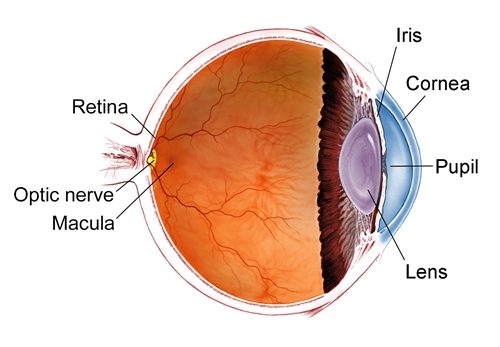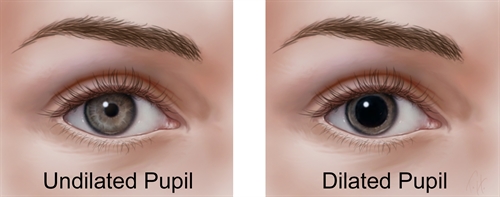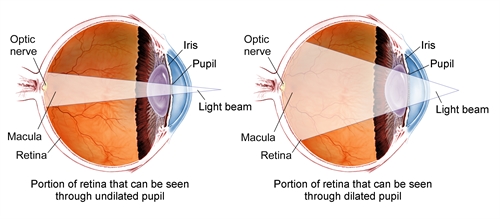Retina Health Information
Did you know that your clear view of the world, the one that allows you to read, drive and recognize faces, relies on the health of your retinas?
So, what is the retina and how does it help us see?
How We See
Think of your eye as a camera. Light enters through the cornea and is controlled by the iris and pupil, which function like a camera shutter, opening (dilating) and closing to allow more light in dark conditions and less light in bright conditions.
This focused light is directed onto the retina, a thin layer of light-sensitive nerve tissue that lines the back of the eye, like film in a camera. Images are focused at its center (known as the macula) and converted into electrical impulses that are carried to the brain by the optic nerve, where they are translated into sight!

Maintaining Retina Health for Good Vision
Retinal disease is a leading cause of blindness and early detection is the game changer.
Here’s how to safeguard your sight:
- Be aware of your risk factors, which may include age, family history or pre-existing health conditions.
- Pay attention to visual changes and visit an eye physician right away if you experience symptoms such as blurry or distorted vision, if straight lines appear wavy, or you see dark spots, flashes of light or floaters.
- Have a regular dilated retina exam.
- See a retina specialist for expert care of retinal diseases/conditions.
Use our Find a Retina Specialist tool to find a retina specialist near you.
What to Expect During a Dilated Eye Exam
Regular dilated retina exams by an ophthalmologist are important, especially for those at higher risk for retinal diseases like diabetic retinopahty and age-related macular degeneration.
|
|
|
|
During a comprehensive eye exam, your eye physician will use eye drops to make your pupils dilate (open widely) to allow a better view of the inside of your eye, especially your retinal tissue. Light sensitivity related to dilation will reverse after a few hours, but sunglasses may be needed in the interim.
In addition to a complete examination of your retina and vitreous cavity, your physician will also evaluate the front part of your eyes to assess your vision (need for corrective lenses), eye pressure (looking for signs of glaucoma), eyelids and cornea (looking for dry eye) and lens (looking for signs of cataracts). If a retinal condition is detected, see a retina specialist.


